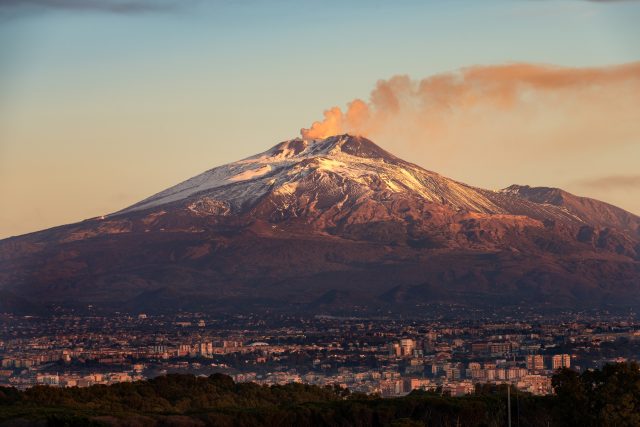‘Highly significant’ impact on wine production from volcanic activity
Volcanic activity plays a critical role in viticulture due its wider impact on the climate, according to new scientific research of the Moselle Valley during the Middle Ages.

The research, which was published in the journal Climate of the Past, discovered that climate has an important role on wine making through the impact on temperature, precipitation and aridity, with warmer and drier climates and longer growing seasons benefitting grapevine growth — but there was a tipping point, which can be damaging, especially in Mediterranean climates.
Scientists from the University of Stockholm’s history department and Bolin Centre for Climate Research looked at the Moselle Valley in north-eastern France, south-western Germany and eastern Luxembourg, which had been a historic centre of wine production, and therefore a worthy place for analysis of the impact of volcanic eruptions.
Tax and ice cores
They looked at the impact of volcanic eruptions on viticulture due to climate cooling from the period of 1444-1786, using tax records for the number of barrels of wine produced, as well as data on stratospheric sulphur data from Greenland and Antarctic ice cores and climate reconstructions from dendrochronology — the analysis of concentric growth rings of wood plants, which provides temperature and precipitation information.
Colder temperatures were created as a result of the aerosols released in volcanic eruptions reflecting incoming solar radiation and also acting as condensation nuclei for cloud formation, reducing the temperature of the earth’s surface.
The team discovered a clear pattern of a reduction in wine production in the years immediately after major volcanic events compared to higher levels of production in warmer and drier years.
Partner Content
Intensity
The scientists discovered a correspondence between no tax on wine production, which suggested a reduced harvest, in the years 1481, 1601, 1674, 1767 and 1784, which were the first years after five volcanic eruptions. It was also found that there was a three to four year reduction in production when there were more intense sequences of eruptions.
The authors concluded: “Robust and highly significant wine production declines occurred in the years immediately following major volcanic events. Warmer, and to a lesser extent drier, climate condition had a moderately strong, but persistent, positive effect on wine production. We also find a volcanic cooling signature in spring and summer in temperature reconstructions.
“However, the detected volcanic signature in the Moselle Valley wine production is considerably stronger than the one found for Central Europe in tree-ring data and is instead more akin to the strong volcanic signature present in Fennoscandian tree-ring series. On the basis of our findings, we encourage further compilation, publication, and analyses of additional wine production series containing unique biological and climatic information.”
Related articles
Sicily winemakers brace as Mount Etna erupts
Wine producers suffer after La Palma volcano eruption
Related news
Moët employs historic plant cuttings and new PIWIS in climate change battle
Genomic breakthrough set to decrease chemical use in NZ vineyards




